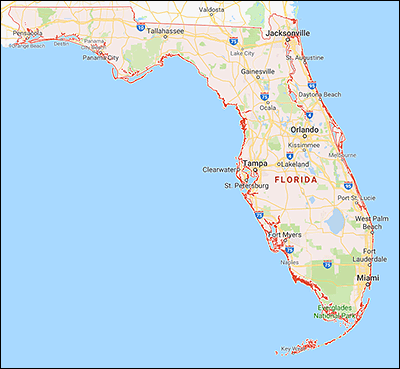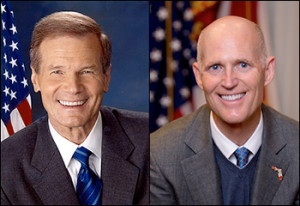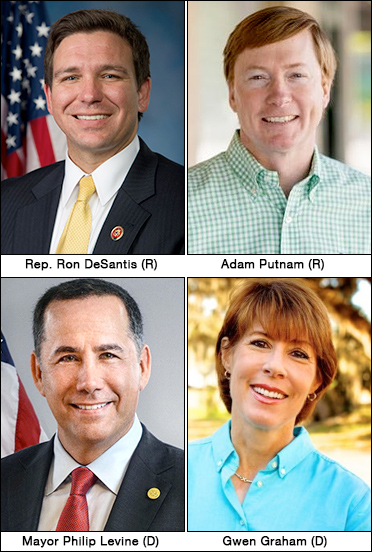By Jim Ellis

Rep. Kyrsten Sinema (D-Phoenix)
— Rep. Kyrsten Sinema (D-Phoenix) was projected as the winner of the open Arizona Senate race Monday afternoon as the 460,000-plus post-election vote count continued laboriously forward.
With Sinema racking up a 130,000-plus vote margin from Maricopa and Pima counties, it was too much for Rep. Martha McSally (R-Tucson) to overcome in the remainder of the state where the she had been able to build a 64,000-vote advantage.
Though McSally conceded this Senate seat, it is possible that she could still end up serving there soon. Appointed Sen. Jon Kyl (R) has said he planned to remain just through the end of this congressional year. Should he resign early next year, McSally — since she will be exiting the House at the end of the current term — would have to be considered a prime appointment prospect to serve until the next general election. Gov. Doug Ducey (R) appointed Kyl on an interim basis when Sen. John McCain (R) passed away earlier in the year.
Should this happen, McSally, as the appointed incumbent, would be able to run again in 2020. Since Sen. McCain was re-elected in 2016, the seat must come before the voters in a 2020 special election with the winner serving the balance of the term. The 2020 victor would then be able to seek the full six-year term in 2022.
Should McSally be appointed, it could conceivably mean that she would run for the Senate in three consecutive election cycles. Just completing her unsuccessful 2018 campaign, and assuming she would run in the 2020 special election, the seat would again be contested in 2022, at which point she could finally run for the six-year term. But, all of this is pure speculation at this very early juncture.
The Sinema victory means the Democrats converted the two most vulnerable Republican seats: Arizona as well as Nevada, where Rep. Jacky Rosen (D) unseated GOP Sen. Dean Heller. Grabbing those two seats was absolutely necessary if the Dems were going to challenge for the majority. That didn’t play out, however, as the Democrats dropped at least three of their own seats (and possibly a fourth if Gov. Rick Scott’s (R) miniscule lead holds in Florida). That means the GOP will net gain at least one seat in the Senate and possibly two despite the loss of both key defense seats.
Turning to Florida, the three close statewide races: senator, governor, and agriculture commissioner, will all go to official recounts. Under Florida election law, election totals separated by less than one-half a percentage point are subject to an automatic recount. Republicans lead two of the three races, obviously all with very small margins.
Gov. Rick Scott’s (R) lead over Sen. Bill Nelson (D) was 12,562 votes at the time the recount was ordered. This from a total vote more that 8.183 million ballots cast. Former Rep. Ron DeSantis (R) sees a slightly larger lead over Tallahassee Mayor Andrew Gillum (D), some 33,684 votes. But, the closest of all is the ag commissioner campaign with Democrat Nikki Fried having a statewide edge over Republican Matt Caldwell of just 5,326 votes.
The 67 counties have until Thursday at 3 pm to complete their machine recount. Under Florida law, if the machine recounts drop any race below one-quarter of a percent between the two candidates, then a hand recount will begin.
The Broward County controversy will continue. Over 24,000 ballots did not record votes in the Senate race, which Democrats claim is either the result of a faulty ballot design or that marked ballots were not being properly read in the machines. I must point out that none of the other 66 counties in the state of Florida are reporting such a problem.
We can expect this process to drag on for a long period of time, and will undoubtedly see a multitude of lawsuits being filed from each side.






